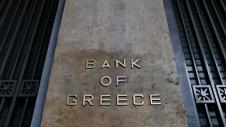Talks are continuing on ways to improve a plan being put together by Greece to help banks reduce bad loans, called the Hercules proposal, in a bid to prevent it from being a lost opportunity for the country and its financial system.
As pointed out by banking officials, the Hercules plan needs to meet three conditions for it to be operational and efficient:
-It must allow banks to sell large chunks of non-performing loans without this weighing on their capital. This means that the benefits to their capital position from participating in the plan must exceed the cost of securing the state guarantees provided on the bad loans.
-All the technical details need to be approved by the European Commission's powerful competition authority DG Comp in order for the scheme not to be considered as illegal state aid. Given that the plan has already been approved, it remains difficult to say why DG Comp would approve any new rules brought to the table by other parties involved in the process.
-The final word will come from the European Central Bank's Single Supervisory Mechanism (SSM). The vital issue is how the regulator SSM will view the securitizations and the bonds to be issued as part of the transaction. Will it accept the part of the guarantee that is zero risk, or not? If not, what risk weight will be set? 10 percent? 20 percent or 50 percent? Bank officials have told Business Daily that the crucial point is whether the ECB will accept the risk on the state guarantees as being set to zero. Anything else will require lenders to up bad loan provisions, potentially harming their capital adequacy.
If these three conditions are not met, then the Hercules plan will prove to be another lost opportunity for the country and its lenders.
The big mistake from Deputy Finance Minister George Zavvos, who is overseeing the bad loan plan, is that he spent all his time securing the approval of DG Comp while ignoring how the proposal would actually be implemented and benefit lenders. As revealed by Business Daily, Zavvos had cut out banks from talks on the plan for unknown reasons and failed to negotiate its technical aspects with the Bank of Greece and the ECB.
The lack of adequate talks and the risk of it ending in a fiasco prompted the recent intervention of Greek Finance Minister Christos Staikouras, who changed strategy and included all relevant parties in the talks process. This has resulted in more being done on the plan in recent weeks but hopes of the necessary conditions being met are low since many see it as unlikely that DG Comp will accept any changes to the approved scheme.
YANNIS PAPADOGIANNIS









